WAKE, National Stadium, Dublin review - a rainbow river of dance, song, and so much else | reviews, news & interviews
WAKE, National Stadium, Dublin review - a rainbow river of dance, song, and so much else
WAKE, National Stadium, Dublin review - a rainbow river of dance, song, and so much else
THISISPOPBABY serves up a joyous tapestry of Ireland contemporary and traditional
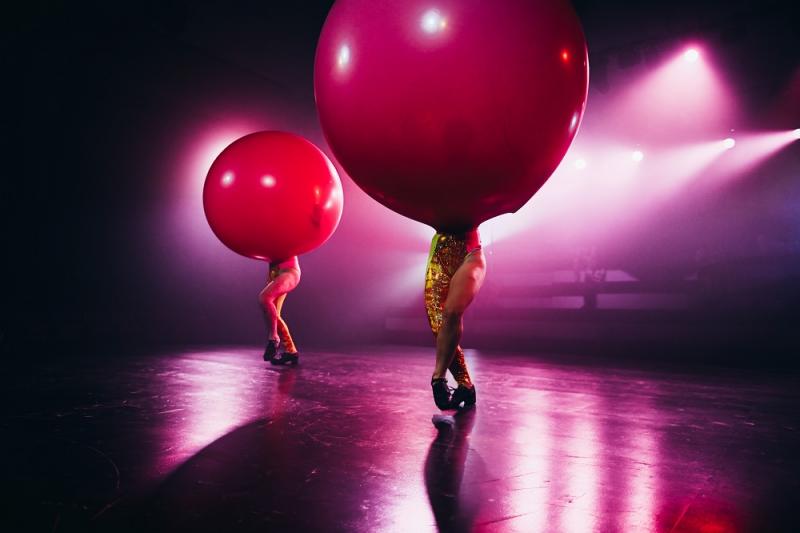
In what feels like the beginning, or at least the Old Testament, there was Riverdance. Now, ready to flow through the world once the world knows it needs it, there’s a rainbow-coloured river of just about everything musical and choreographic that’s found its place in contemporary Ireland, performed with a pulsating energy as well as a poetry that stops you wondering too much about all the connections.
Such is WAKE, created by pioneering company THISISPOPBABY's Jennifer Jennings, the polymathic Philip McMahon and Niall Sweeney with a score by Alma Kelliher, who sings superbly throughout. Avowedly, in Nigerian-Irish poet Felicia Olusanya‘s dazzling first monologue to a text by Carys D Coburn that's both visionary and earthy, "this is the wake for everything that's never coming back/This is the christening of the gorgeous radical nothing we're facing," a post-pandemic invocation to feel each other in any way you want (Olusanya pictured below). 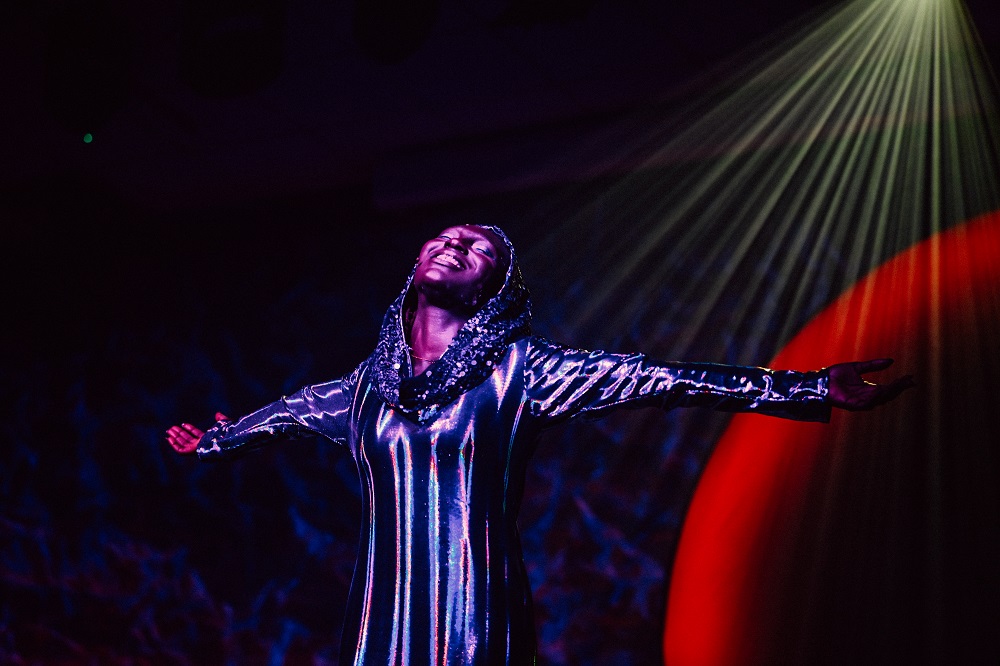 Anything goes in what follows, which you might say loses the thread at times: because of the huge range of styles and genres, each audience member will want more of something, and I longed for a few more linking reflections from Olusanya to keep it all on course. Her last incantation proved the point, evoking the way the dead return among us the morning after in a way that a long new Irish play currently running at the Abbey Theatre – unfair to name it in passing – failed to do, for me, at any rate.
Anything goes in what follows, which you might say loses the thread at times: because of the huge range of styles and genres, each audience member will want more of something, and I longed for a few more linking reflections from Olusanya to keep it all on course. Her last incantation proved the point, evoking the way the dead return among us the morning after in a way that a long new Irish play currently running at the Abbey Theatre – unfair to name it in passing – failed to do, for me, at any rate.
Yes, we get the nifty footwork Flatley made so international, but in numbers which go conspicuously beyond what you expect when they start. Gifted choreographer Philip Connaughton’s drunken gay uncle (pictured below with the ensemble) strips off, singing as well as he dances; the body-beautiful Michael Roberson, Irish tap dancing champion from Little Rock (pictured further below), comes on in Gaelic Athletic Association kit – I needed to be told afterwards that the wonder of the GAA matches is that they’re played by amateurs performing at a professional level, uncorrupted by cash – and does another, this time very hot, striptease, mixing vigorous foot work with rising into the air (to add an extra string to his bow after the audition he went away to learn in a circus). 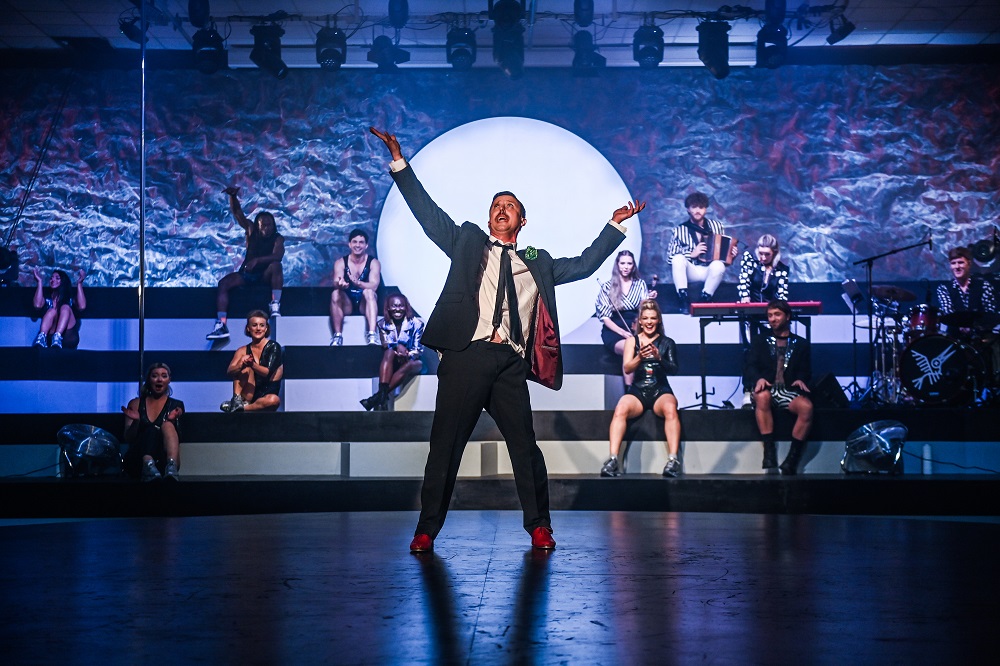 There are more ensemble variations on Irish dancing, but also other modes which Ireland has embraced, not least the breathtaking break dance of Cristian Emmanuel Dirocie, who honed his craft when he came here from the Domnican Republic at the age of 17. Dirocie is another of those natural communicators prepared to go beyond the mere virtuosity of the discipline. There’s plenty of aerialism, and who would have thought that pole dancing could be the thing of wonder it is as Lisette Krol reflects the metaphysics of Jade O'Connor's song.
There are more ensemble variations on Irish dancing, but also other modes which Ireland has embraced, not least the breathtaking break dance of Cristian Emmanuel Dirocie, who honed his craft when he came here from the Domnican Republic at the age of 17. Dirocie is another of those natural communicators prepared to go beyond the mere virtuosity of the discipline. There’s plenty of aerialism, and who would have thought that pole dancing could be the thing of wonder it is as Lisette Krol reflects the metaphysics of Jade O'Connor's song.
The band comes closest to Irish roots. There’s a mesmerizing evolution in Lucia McPartlin‘s big violin solo, further top-notch vocals from frontman Adam Matthews and a transcendental accordion reflection from Darren Roche which comes just when we need a break from the high octane levels. I'd discovered what a multitude of styles and skills could come under the umbrella of the RTÉ Radio 1 Folk Awards a couple of weeks back, and this was a further opening of eyes and ears. 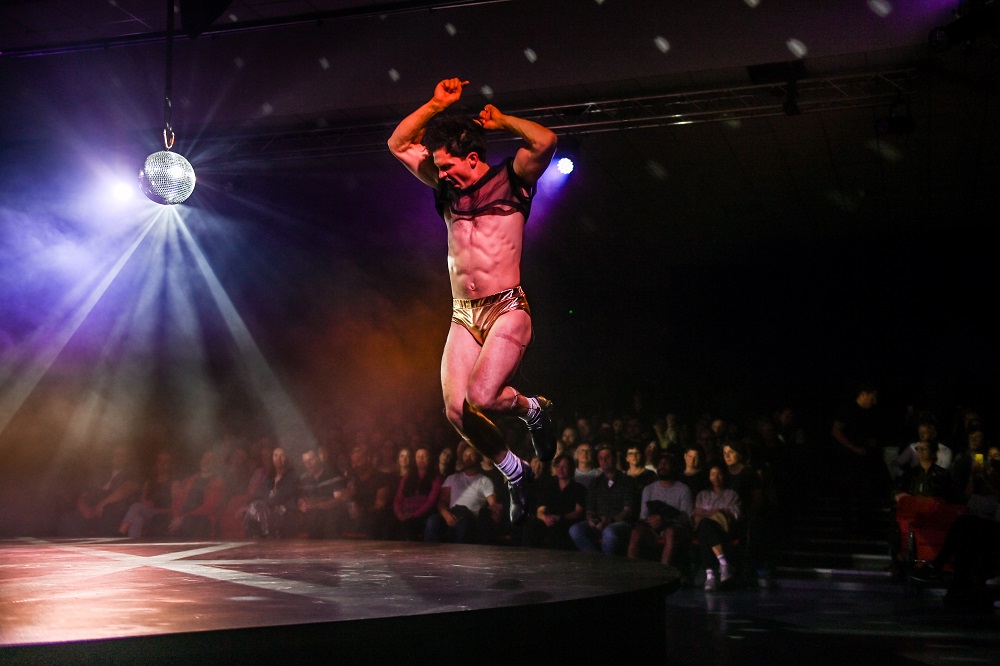 We were also blessed with a special guest appearance right at the start from violinist and composer Colm Mac Con Iomaire. He moved us all by playing with his sampled self in "The Minbar of Saladin", a Palestinian-Israeli fusion piece inspired by his tour of the Middle East with author Colum McCann, whose award-winning novel Apeirogon is about shared grief across the divide. The violinist's words around the Gaza genocide were of a quiet eloquence – not the amazing, angry protest we’d heard at the Folk Awards (and in the presence of President Michael D Higgins) from folk singer Eoghan Ó Ceannabháin, but the point here was powerfuly made about being on different sides politically but the same side of humanity.
We were also blessed with a special guest appearance right at the start from violinist and composer Colm Mac Con Iomaire. He moved us all by playing with his sampled self in "The Minbar of Saladin", a Palestinian-Israeli fusion piece inspired by his tour of the Middle East with author Colum McCann, whose award-winning novel Apeirogon is about shared grief across the divide. The violinist's words around the Gaza genocide were of a quiet eloquence – not the amazing, angry protest we’d heard at the Folk Awards (and in the presence of President Michael D Higgins) from folk singer Eoghan Ó Ceannabháin, but the point here was powerfuly made about being on different sides politically but the same side of humanity.
You can’t win ‘em all, and personally I could have done without the second turn from Emer Dineen as English cousin (col ceathrair) and drag king Duncan Disorderly, but the crowd loved the participation, and it added another strand. On the other hand I laughed myself senseless with ongoing amazement at what Connaughton and Deirdre Griffin could do with two giant balloons above and, eventually, over their heads. 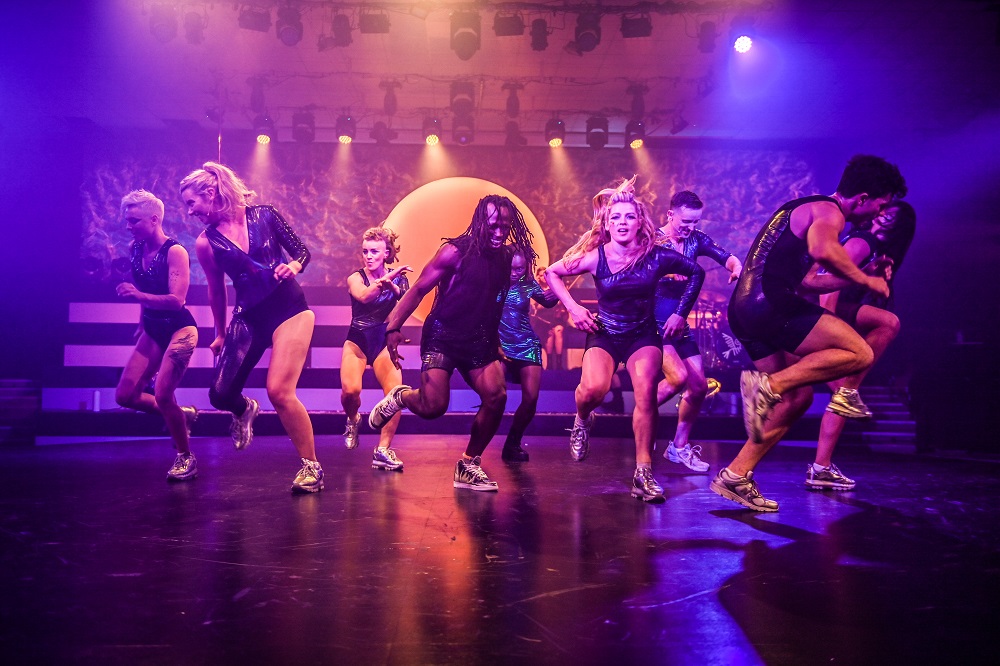 The messages about diversity and sexuality are lightly worn throughout. Design by Sweeney (set, graphics) and Julian Smith of UK Drag Race fame (costumes), and lighting by Mark Galione play their part in the fabulous visual continuity of it all, with clean black-outs and deft, quick changes. It's a popularity contest in one sense, but something cumulatively rich and rare which plays on the mind long after the fun is over. May it now travel the globe.
The messages about diversity and sexuality are lightly worn throughout. Design by Sweeney (set, graphics) and Julian Smith of UK Drag Race fame (costumes), and lighting by Mark Galione play their part in the fabulous visual continuity of it all, with clean black-outs and deft, quick changes. It's a popularity contest in one sense, but something cumulatively rich and rare which plays on the mind long after the fun is over. May it now travel the globe.
Colm Mac Con Iomaire performs 'The Minbar of Saladin' on YouTube
The future of Arts Journalism
You can stop theartsdesk.com closing!
We urgently need financing to survive. Our fundraising drive has thus far raised £49,000 but we need to reach £100,000 or we will be forced to close. Please contribute here: https://gofund.me/c3f6033d
And if you can forward this information to anyone who might assist, we’d be grateful.

Subscribe to theartsdesk.com
Thank you for continuing to read our work on theartsdesk.com. For unlimited access to every article in its entirety, including our archive of more than 15,000 pieces, we're asking for £5 per month or £40 per year. We feel it's a very good deal, and hope you do too.
To take a subscription now simply click here.
And if you're looking for that extra gift for a friend or family member, why not treat them to a theartsdesk.com gift subscription?

Add comment